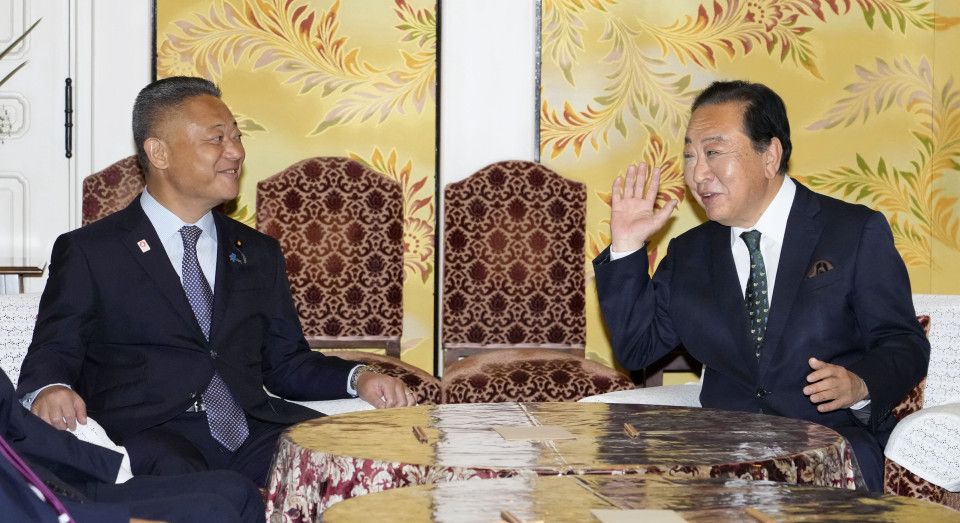
The leader of Japan’s main opposition party, Yoshihiko Noda, intensified his efforts to rally cross-party support in his bid to become the next prime minister following the strength gained by his party, the Constitutional Democratic Party of Japan (CDPJ), in the recent general elections.
However, unity in the opposition bloc has been elusive, as the Democratic Party for the People (DPP), which quadrupled its number of seats, rejected the CDPJ’s invitation to hold leadership talks.
Meanwhile, Prime Minister Shigeru Ishiba, president of the Liberal Democratic Party (LDP), is seeking alliances with the DPP to ensure the stability of his government, after the ruling coalition lost control of the majority in Japan’s Lower House. Senior representatives of both parties will meet on Thursday to discuss possible political coordination on economic and social issues, the first since the LDP’s electoral setback.
Japan has been going through a period of political uncertainty since the election, in which the ruling coalition of the LDP and the Komeito party won just 215 seats out of 465 in the Lower House, falling short of the majority of 233 needed to maintain control. For its part, the CDPJ was strengthened with 148 seats, also insufficient to secure the leadership, and the DPP increased its representation to 28 seats. The Japan Innovation Party (JIP), another major opposition group, decreased its representation from 43 to 38 seats.
Noda’s strategy to unite the opposition around his leadership remains in development. In a recent meeting with Nobuhiko Baba, leader of the JIP, he did not obtain an explicit commitment of support. Baba indicated that he will only support Noda if a concrete proposal for political reforms is presented, while Tomoko Tamura, leader of the Japanese Communist Party, has expressed a favorable stance to support him.
Yuichiro Tamaki, leader of the DPP, confirmed that his party will vote for himself in the prime minister election. In the event of a second round, all votes cast for Tamaki would be considered invalid, which would benefit Ishiba.
The LDP, for its part, has kept the door open to specific collaborations with some members of the opposition on economic policy issues. Ishiba has invited six independent elected legislators to join a group affiliated with his party, seeking to strengthen his support base in the House.
Thursday’s meeting between the general secretaries of the LDP and the DPP will address the possibility of incorporating proposals from both parties into an economic package to counter the negative effects of inflation. The government plans to finalize these measures in November, with the aim of improving the population’s income, a topic of special interest to the DPP, according to recent statements by Tamaki.
In turn, the LDP’s coalition partner, the Komeito party, and the DPP are organizing another meeting on Friday to advance a possible collaboration agreement. As the date of November 11 approaches, when the Japanese parliament will meet in special session to select the next prime minister, both the ruling bloc and the opposition are negotiating intensely to guarantee their leadership in a divided parliament.
Source: https://reporteasia.com/politica/2024/10/30/japon-competencia-politica-oposicion-partido-gobernante-alianzas/

